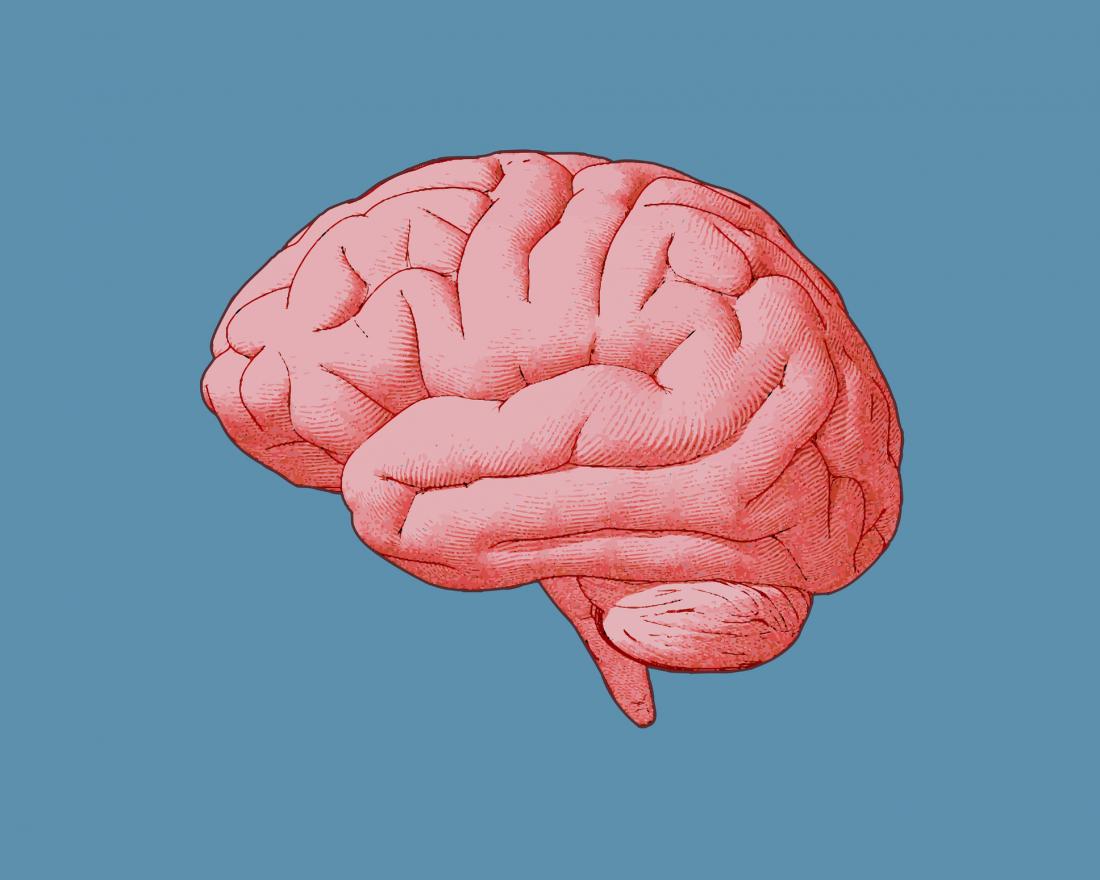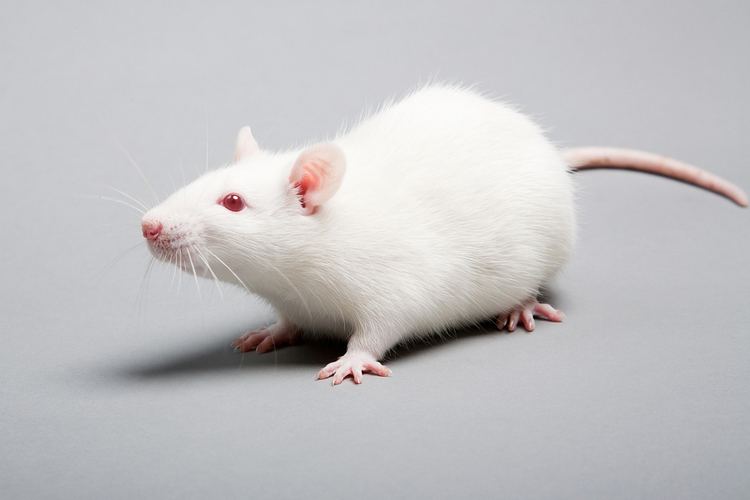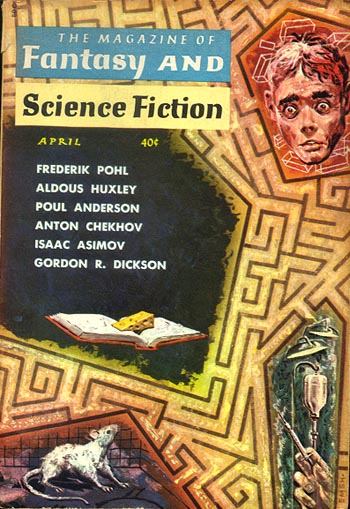
by Victoria Lucas
The View from Here
[Six years ago, Daniel Keyes made science fiction history with his revolutionary novelette, Flowers for Algernon. The very height of his triumph was the author's undoing; though he has produced several stories since then, none have had the impact as that first great piece. It was perhaps inevitable that he would revisit the well in pursuit of the success that eluded him. Vicki Lucas, a relatively nufan who had not previously encountered Keyes' work, gives her take on the novelization of the original story.]

current edition of Flowers for Algernon
Try as I might, I have great difficulty thinking of this novel as a science-fiction story. It could be conceived of as a psychological thriller, but no one dies except a mouse. It is deeply psychological and delves as far into the brain as anyone can get right now, accepting Freudian analysis as routine, while it is Jung's "individuation" that the main character, Charlie Gordon, seeks without a guide except for his reading.
Epistolary writing rare in science fiction
As far as I can tell from the short biography I was able to get hold of the author's background is steeped in science fiction, horror, and comic-book-hero writing and editing for publishers. Keyes writes in a style unusual in science fiction but more well known in the horror genre, in which the narrative unfolds in a series of letters ("epistles") or reports. His knowledge and expertise in styles may be why he teaches creative writing at Wayne State University now. The epistolary style is perfect for this story, in which so much of the action takes place in Charlie's brain.

Sometimes the brain is a maze
The Experimental as Science Fiction
The reports are "Progress reports" from Charlie, who begins with an IQ of 68, seeks knowledge beginning with reading and writing, and early in the novel undergoes experimental surgery that rapidly increases his IQ to 185. In the 7 months from his surgery to, well, the ultimate failure of the experiment, he traverses a lifetime of knowledge, emotional turmoil, and sexual longing and finally fulfillment (which is why the book is banned in places). The theory and practice of the experiment of which he becomes a part is currently science fiction, although who knows what the future of biochemistry and neurosurgery will bring?
"Pulling a Charlie Gordon"
Charlie struggles with his anger, his longing, his need to be respected, and his lack of discipline that inevitably get in the way of his accomplishing what he finally wishes he had been able to do. His anger is the biggest hurdle, and he never conquers it, despite the therapy in which he participates. At first he is angry because a mouse who has also undergone the surgery, Algernon, beats him at solving a maze. Then he is angry because he does not like the way Algernon is treated and eventually absconds with him. And the list goes on, as he executes a more intelligent version of what the men who worked with him called "pulling a Charlie Gordon," in which he makes a fool of himself. It is the treatment of Charlie by his mother, little sister, other children, people he thought were his friends, and quacks who flim-flam his mother that has earned his anger. And I really can't blame him. Much of the novel details the kind of thing that happens to "morons," who are perceived as less than human and locked away, often in institutions. Late in the book we go along as he tours such an institution, and it is treated sympathetically, with recognition of those who devote their lives to people rejected and ill-used by society. Again and again he is faced by the need to stop being selfish and focus on others, but his emotional maturation cannot keep pace with his too-rapidly growing intelligence quotient.

Algernon at his most intelligent
From "Exceptional" to "Exceptional"
In an early progress report after his intelligence begins to increase, Charlie complains that, "Before, they had laughed at me, despising me for my ignorance and dullness. Now, they hated me for my knowledge and understanding." As he nears the peak of his intelligence, he has spiritual experiences that he describes with elegance: "It's as if all the things I've learned have fused into a crystal universe spinning before me, so that I can see all the facets of it reflected in gorgeous bursts of light," so that Charlie is "living at a peak of clarity and beauty I never knew existed." Unfortunately, these experiences are brief and he cannot learn from them any more than he can quell his anger to prolong a love affair that brings him great joy for a short time.

A Rorschach card
The climb is too quick after 33 years of persecution and pain. The fall, like the falls of all those who seek to climb too high in dramatic terms, is swift and complete. I recommend this book, no matter its genre, and hope that anyone who reads it finds him- or herself touched by the plight of both those who are "exceptional" on the low end and those "exceptional" on the high end.
What will you see in it?
I see five stars.

![[January 28, 1966] The Book as Rorschach Test (<i>Flowers for Algernon</i>)](https://galacticjourney.org/wp-content/uploads/2021/01/laboratory-mouse-a55d9736-9685-4f2a-b530-192cdc8ee6a-resize-750-672x372.jpg)


